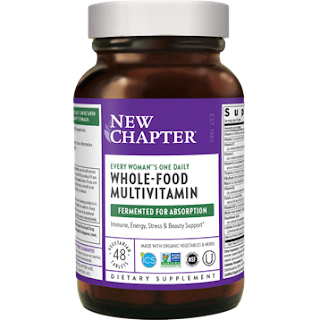Supplement Saturday: The Top 3 Supplements I Recommend To My Clients
When I first decided to become a Registered Dietitian Nutritionist (RDN), I thought the bulk of my job would be educating people on how to make healthier food choices. But, I learned that nutrition isn't just about reading food labels to make healthier choices at the grocery store.
A large part of my current work is recommending supplements. Here are the 3 supplements I most often recommend to my current clients and why...
#1: Multivitamin
This probably is not a surprise. Most clients come to a dietitian because they aren't eating well. If they aren't eating well, they aren't getting enough vitamins & minerals. So, of course, I recommend a multivitamin-multimineral supplement. The particular multivitamin formula does vary. Clients who are menstruating often need more iron, for example. There are also specialty formulas for people for health conditions including kidney disease & macular degeneration.
Multivitamins are generally well-tolerated. However, you may feel nauseated if you take one on an empty stomach, so I recommend taking them with a meal.
#2: Protein
Again, this may not be a surprise. People end up in my care because they aren't eating well. A lot of people do get enough protein. But there are also a variety of reasons people aren't getting enough. People with certain medical conditions, like end stage renal disease on dialysis, need more protein than healthy individuals. Clients may eat mostly processed foods, due to food insecurity, lack of cooking skills, or food aversions. Older adults may eat less protein due to pain or difficulty chewing or swallowing.
I recommend a variety of protein supplements including bars, shakes, powders, and even high-protein ice cream! For clients with significant wounds, protein supplements pair well with my next supplement...
#3: Vitamin C
This is not one I personally take regularly nor is this something everyone should take regularly. However, I recommend this frequently to clients with chronic wounds. Vitamin C can help with collagen formation needed to heal wounds & surgical incisions.
I also frequently recommend vitamin C for clients who are on diuretics which increase vitamin C excretion. Lastly, some clients may benefit from vitamin C if they have a low vitamin C intake. (Scurvy or vitamin C deficiency is still around!) This includes people following a low-carb diet, such as the keto diet, those with food insecurity, and those with a very poor appetite.
That said, I don't recommend everyone take vitamin C. High doses can cause diarrhea and kidney stones. Most people can get enough vitamin C from fruits and vegetables. Besides oranges, it's found in strawberries, kiwi, tomatoes, bell peppers, cauliflower, and even broccoli!







